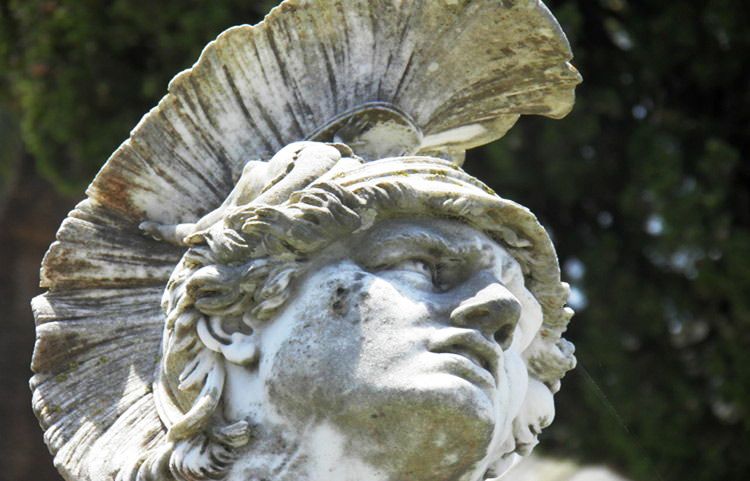-
Our Best Vacation
We had a shaky start to our week's stay, but could not have been met with nicer, more eager to please staff who made every effort to get us back on track. We arrived here on tuesday the 10th and was showed to our room by a wonderful lady Lydia.From the moment we walked into Hotel Secret, we breathed a sigh of relief and pleasure. Every detail is thought of in the most subtle way. Very well located, next to everything by foot The bar area is great for drinks if you're back after a long day out on the beach. The room is well appointed, beds are super comfortable. The pool is great. Wonderful furnitures in the room which was beautifully clean and well-organised.
The Ypsos Beach, the Blue Lagoon, the Aquapark, are something that you can't miss and I can only say that I want to be back.
You can rent car at the hotel.
I would return here again and again!
Tonyjason96
18 September 2019
-
Великолепно!
Это очень чистый, уютный, приятный отель с потрясающими видами и очень доброжелательными людьми, готовыми помочь, подсказать и рассказать все, что нужно! Находится в тихом и спокойном месте острова, лучшей его части по расположению, транспортной доступности, видам, чистоте и красоте, на наш взгляд. До моря минут 10-15 неспешным шагом, на набережной разнообразие кафе и ресторанов, супермаркет в наличии, недалеко от отеля фруктовый магазин. За две недели проживания ни одного повода для разочарования, только положительные эмоции! Большое спасибо хозяину отеля и всем, кто ежедневно был рядом и создавал семейную и приятную атмосферу!
Hpakoh
6 October 2019
-
Ottimo hotel!
Durante il nostro viaggio a Corfù abbiamo soggiornato in questo hotel.
Siamo stati accolti dalla proprietaria appena arrivati in modo molto cortese, ci ha mostrato il regolamento e spiegato un po' gli orari, dopodiché ci ha accompagnato nelle nostre camere portando lei stessa la valigia in quanto non ci sono ascensori.
La camera era pulita così come il bagno dell'hotel e l'hotel stesso.
Ogni giorno sistemano le camere e puliscono il bagno.
La colazione è molto buona e varia, l'unica cosa che consiglio e di aggiungere i cornetti; in più èanche con vista sul mare
Noi non beviamo latte freddo e ogni giorno gentilmente e gratuitamente ce lo preparavano e abbiamo apprezzato molto
I proprietari sono stati sempre gentilissimi per tutta la durata del soggiorno e ci hanno riservato anche un parcheggio per il nostro scooter.
Le camere hanno anche un balconcino con sedie e tavolino e una vista su ipsos
L'hotel ha anche la piscina, phon ed è vicinissimo a piedi a ipsos e anche alla fermata del bus che porta a Corfù town
Se dovessi ritornare a Corfù ritornerei in questo hotel senza alcun dubbio!
cconvertini2
28 September 2019
-
Struttura veramente eccellente
Ho soggiornato in questa struttura per una settimana nel mese di agosto. La posizione dell'hotel è strategica, poco distante dalla spiaggia e dai principali locali della movida di Ipsos. La struttura risulta essere ben curata nei dettagli, nella pulizia e nell'accoglienza. Per ciò che riguarda questa ultima caratteristica (accoglienza) da sottolineare la gentilezza e la disponibilità, per noleggiare un'auto e per le diverse informazioni sui luoghi da visitare. Le camere godono di una bella vista mare. È inoltre presente una piscina, riservata ai clienti dell'hotel, che consente di rilassarsi. Buona anche la colazione.
AndreaB378
23 August 2019
-
Posizione strategica
Abbiamo soggiornato in questo hotel familiare per 10 giorni ad agosto. Camere grandi e pulite con balcone vista mare, colazione semplice ma con yougurt greco e miele d'obbligo. La vista sulla terrazza la mattina ti ricarica di energie positive. Proprietari molto gentili e disponibili sia ad ogni richiesta che semplicemente a chiacchierare! La posizione è buona per non alloggiare nel caos dei locali di Ipsos notturna.
Scorpioncina79
18 August 2019
-
Best Choice
Hotel Corfu Secret is just amazing. The best Value for Money! The owner Spyros and Lydia are very politely. The hospitality, the rooms, the breakfast, the view... everything is perfect. If I have the possibility to put 10 stars, I would make it. So, take 5 stars from us Corfu Secret and continue to provide Greek hospitality as it is!!!!
Solon T
16 June 2019
-
Great view - Great service
Very nice boutique hotel. Thanks to all for the the friendly service. Spiro, you are the best my friend. Be sure i will be back soon to drink you on balcony with great view.
Tony Luciano
moussos1@......
21 October 2011
-
Πολύ καλό!!!
Πάρα πολύ καλό ξενοδοχείο με πραγματικά φανταστική θέα. Άψογο service και καθαριότητα. Προσωπικό πολύ ευγενικό κι εξυπηρετηθήκαμε σε όλα. Τέλεια παραλία το Μπαρμπάτι. Δέκα με τόνο
Γιάννης Καρπετόπουλος
tzia5@......
25 November 2010
-
ΑΠΙΘΑΝΕΣ ΔΙΑΚΟΠΕΣ
Δεν είναι ψέματα. Σπύρο σ' ευχαριστούμε. Περάσαμε απίθανα. Φανταστική η θέα σου φίλε.Μόλις τώρα βρήκα ότι μπορώ να κάνω σχόλια στο site σας αλλιώς θα είχα γράψει εδώ και μέρες.Φοβερό ξενοδοχείο.Εύχομαι να παραμείνετε πάντα έτσι και να μη χαλάσετε...Ένα μεγάλο ευχαριστώ στο προσωπικό.Κράτα από τώρα δωμάτιο για του χρόνου
Γιώργος Γιακουμάτος
tzia6@......
5 November 2010
-
Good work on your new website
I found your site very nice and useful.
Kostas
jt.k0stas@.......
22 April 2010

